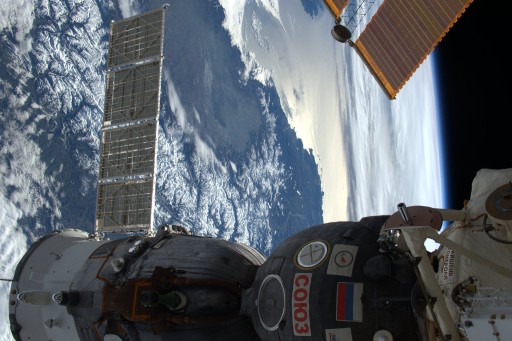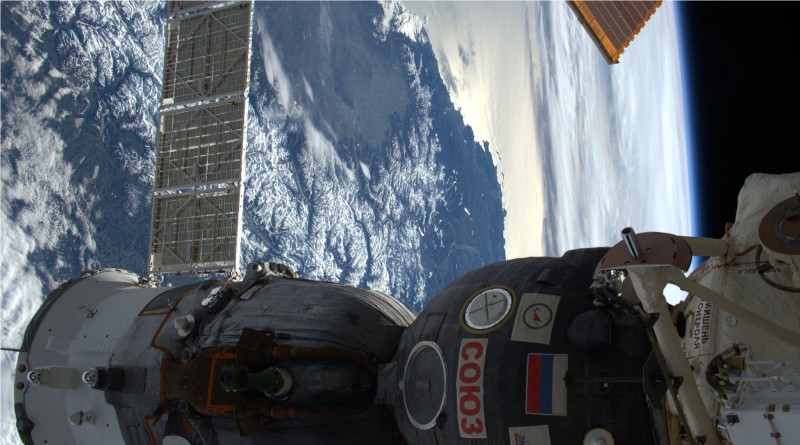ISS Operations Update – February 24, 2016

Experiments:
Airway Monitoring [This study looks at the occurrence and indicators of airway inflammation in ISS crew members as the result of dust particles present aboard the Space Station. The experiment uses ultra-sensitive gas analyzers to study exhaled air to assess the health impacts related to dust, especially for longer duration missions for which crew members have to be self-sufficient in atmospheric maintenance and the treatment of potential health conditions. Airway inflammation will be assessed by measuring exhaled nitric oxide. This type of diagnostic may also find application on Earth for the monitoring of asthma or other inflammatory airway diseases.]
Space Automated Bioproduct Laboratory (SABL) – Two-Week Checkout Start [SABL is a new space life science facility to be deployed on the International Space Station for a wide variety of research ranging from fundamental, applied and commercial space life sciences research to education-based investigations. The Space Automated Bioproduct Lab is an incubator facility to host cell culture and other biological experiments, supporting bacteria, yeast, algae, fungi, viruses, animal cells and tissues and small plant and animal organisms.]
Habitability [Assessment of International Space Station Vehicle Habitability will see teams on the ground study video of the behavior of crew members within the habitable environment of ISS while the crew fills out questionnaires and collects video of areas of interest in order to provide an assessment of the habitability of ISS in its current state for a one-year mission. Results will be used to develop spacecraft with improved habitability properties to allow crew members to optimally utilize the onboard space.]
Sleep ISS-12 [The ISS-12 experiment monitors the ambient light exposure and crew member activity and collects data on the subjective evaluation of sleep and alertness. Ambient light and activity are monitored via a wrist-worn actiwatch that delivers actiwatch spectrums that are put through bio-mathematical models of sleep and light to predict circadian phase. Sleep logs will be kept by crew members as a subjective assessment of sleep quality and duration. It is hoped that this investigation can deliver requirements for lighting, sleep-shifting protocols and workloads for future space exploration missions.]
Fine Motor Skills [Fine Motor Skills uses a tablet touchscreen application to monitor degradation in fine motor abilities over the course of an extended exposure to microgravity. A drop in fine motor skills can lead to problems when crew members are tasked with medical treatment, repairing sensitive equipment and interacting with touch-based equipment. Tests utilized by this study include multidirectional pointing, dragging, shape tracing, and object manipulation to create a knowledgebase that will allow scientists to evaluate the risk of fine motor performance decrements due to long-duration exposure to microgravity.]
Maintenance/Systems:
Nominal Inspections/Servicing Tasks (Morning Inspection, Caution & Warning Panel Check, Sozh System Maintenance) (Russian Crew)
Scheduled maintenance of Central Post Laptop
Returned to Service: Water Processing Assembly, Treadmill 2, Water Recovery System
Electrostatic Levitation Furnace – Checkout Unsuccessful, Troubleshooting underway [The Electrostatic Levitation Furnace will provide ISS with its second Materials Science facility operating on the basis of electrostatic levitation, alongside the Electromagnetic Levitator that is active aboard the Columbus laboratory, studying fundamental principles of metallurgy. Heating and melting samples of metal alloys or other materials in a zero-G environment followed by the solidification of the sample yields a very pure material without any contaminations. The study of the solidification process and the finished product can provide valuable knowledge concerning the properties of the material that could improve production techniques on Earth for better material properties in alloys, glass and ceramics.]
Other Activities:
Soyuz TMA-18M Disposal Cargo Loading
Progress M-29M Trash Loading
Crew Departure Preparations
PAO Event

